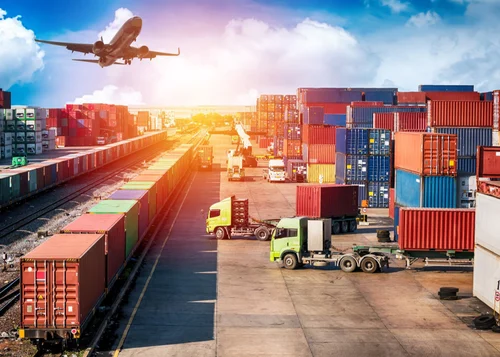The logistics industry is undergoing a technological revolution, with digital platforms transforming how goods are transported and managed. Emerging technologies are driving these changes, which streamline operations, improve transparency and optimise supply chain management. As freight marketplaces evolve, they play an increasingly critical role in enabling businesses to meet modern logistics challenges effectively.
The role of technology in freight marketplaces
An online freight marketplace is a digital platform that connects shippers and carriers, providing a centralised solution for freight transactions. This innovation simplifies complex logistics processes, offering features such as real-time tracking, pricing transparency and automated documentation. By leveraging these platforms, businesses can achieve greater operational efficiency and reduce costs.
Technology lies at the core of these platforms, enabling once unimaginable features. Real-time tracking, for example, allows shippers to monitor their goods throughout the journey, minimising risks and delays. Moreover, these marketplaces facilitate data-driven decision-making, empowering businesses to adapt to fluctuating demands rapidly.
Key innovations driving freight marketplaces
1.Artificial intelligence and predictive analytics
AI and machine learning are game-changing technologies in freight management. They analyse historical data, predict future trends, and optimise routes and schedules. For instance, AI-powered algorithms can identify the most efficient carrier options and anticipate market fluctuations, helping businesses make cost-effective choices.
2.Blockchain for secure transactions
Blockchain technology ensures secure, transparent and tamper-proof transactions. In a freight marketplace, blockchain can authenticate shipments, verify payments, and maintain immutable records. This reduces disputes and builds trust between shippers and carriers.
3.IoT for real-time insights
The Internet of Things (IoT) integrates smart sensors into freight operations, offering real-time data on cargo conditions such as temperature, humidity and location. This is especially beneficial for industries like pharmaceuticals and food, where maintaining specific conditions is critical.
The role of automation in freight marketplaces
Automation is another driving force behind the growth of freight marketplaces. From booking shipments to generating invoices, automated processes save time and minimiSe errors. Robotic Process Automation (RPA) further enhances efficiency by streamlining repetitive tasks, allowing businesses to focus on strategic planning.
Automated freight audits and payment systems ensure accurate billing and quick reconciliation. These systems reduce the burden of manual verification, enabling companies to maintain financial accuracy without unnecessary effort.
Sustainability in freight marketplaces
Environmental concerns are reshaping the logistics landscape, and freight marketplaces are at the forefront of sustainable innovation. Many platforms now offer eco-friendly options, such as consolidated shipments and optimised routing to reduce fuel consumption. By integrating carbon tracking tools, these marketplaces allow businesses to monitor and reduce their carbon footprint, aligning with global sustainability goals.
Real-world applications of freight marketplaces
1.E-commerce logistics
Freight marketplaces have become essential for the booming e-commerce sector. With dynamic pricing and flexible shipping options, these platforms help online retailers meet customer expectations for fast and reliable deliveries.
2.International trade
For businesses engaged in global trade, freight marketplaces simplify cross-border shipping by offering access to international carriers and customs management tools. Shippers moving freight between the U.S. and Canada often look for a reliable Canada load board to find cross-border capacity and streamline compliance with customs and border requirements.
3.Small and Medium Enterprises (SMEs)
Freight marketplaces provide SMEs access to resources previously only available to large corporations. These platforms enable small businesses to scale operations without significant overhead costs by connecting them to a diverse network of carriers.
The future of freight marketplaces
The future of freight marketplaces looks promising, with continuous innovation on the horizon. Artificial intelligence will become more sophisticated, offering real-time decision-making tools. Blockchain adoption is expected to grow, enhancing security and trust in logistics operations.
As environmental concerns intensify, freight marketplaces will integrate more advanced sustainability features, such as AI-driven emissions reduction tools and partnerships with green carriers. These advancements will make logistics more efficient, reliable and eco-friendly, benefitting businesses and the planet.
Freight marketplaces have revolutionised logistics, enabling businesses to easily navigate the complexities of supply chain management. Through innovations like AI, blockchain and IoT, these platforms are shaping a new era of logistics that prioritises efficiency, security and sustainability. As technology advances, freight marketplaces will remain vital for businesses looking to thrive in a competitive global market.





























